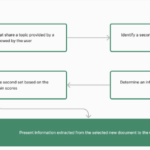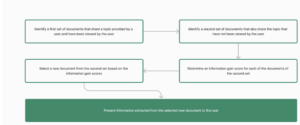The goal of search engines optimization is to earn high-quality links. Backlinks or inbound links can have a significant impact on your search results.
Google’s main priority is to provide comprehensive and useful information to users. You have a better chance of ranking highly on search results if you build high-quality links. Link building can help you improve your search rankings, but it’s easier said than accomplished.
Google considers several factors in addition to the number and quality of links that point at your website. The linking site’s authority, ranking in search engines, and relevance are all factors that Google considers. Google also evaluates your backlinks’ editorial quality.
You might already be aware that quality backlinks can boost your search engine performance. Bad links can harm your online business performance. How do you get good links? What is the best place to start?
You need to know the basics about how to build backlinks before you can begin optimizing your website. This post will cover everything you need about link building and backlinks. They include:
Backlinks
Backlinks: Why are they important?
Backlinks: How to Get Them
Backlinks: Good and bad
* How Google evaluates backlink quality
How to create high-quality links
Let’s get started.
What are Backlinks ?
Backlinks are links that go from one site to another. Backlinks are, for example, links that lead online readers to your website from a news page.
Let’s take a look at this illustration to help you understand:
Site A contains an external link that leads to site B. This link redirects site visitors from site A to siteB. Site B receives a link from A.
Why is it important to have backlinks?
Backlinks play a significant role in ranking. Google views incoming links from other sites as “votes of confidence”. Backlinks can have a significant impact on your website’s visibility in search results or its ranking.
How backlinks can help you to rank your website at the top of search engine result pages (SERPs).
* Improved Organic ranking — High-quality links can improve the organic ranking of your site dramatically. Your website will start to rise in the SERPs as it receives more links. Google receives signals from backlinks that your website is relevant and informative.
* Referral traffic — Links from news aggregators and third-party review sites can significantly boost your website traffic. This occurs when a user clicking on a link on another website leads them to your site.
Remember, online readers click on links voluntarily. Referral traffic is more targeted, and bounce rates are lower.
Faster Indexing – Inbound links accelerate the discovery and indexing your website. Google bots track and evaluate links from other websites. Google can only crawl and index your website once it has discovered it. It may take some time for search engine to discover your site if you don’t have backlinks. This is particularly true for newly launched websites.
Improved Site Authority — Backlinks can boost your Online Reputation. Inbound links are a sign of trust, not just from other websites, but also online users.
* Increased link juice — This refers the value that is passed from one site to another. Hyperlinks are the way to acquire link juice. Google recognizes these links from other websites as a vote that your page is relevant and valuable to search queries.
If all other ranking factors remain constant, and your website receives a backlink while site B does not, then your site will be ranked higher in the search results. What happens when site B only receives one backlink? The results are dependent on how much juice each link transmits. Your chances of ranking higher than your competitors increase the more backlinks you have.
Stronger Network — Link building is a great way to strengthen your relationship and expand your network. Your chances of gaining strong followers increase the more webmasters find out about your site and your informative content. Link building also allows you to tap a large network of people who can promote your content and brand online.
You need high-quality links to improve your website’s performance. Here are some smart ways to get qualified inbound links.
How to get backlinks
Citations are similar to backlinks. To establish your brand authority, and to boost your ranking online, it is important that you use the best link-building practices.
How to get backlinks for your website?
1. Create valuable, informative content. Everyone appreciates a useful web page. It is proven that publishing unique content, with comprehensive visuals and engaging text, will help you to gain backlinks. Here are some tips that you can use:
Use infographics to leverage your marketing efforts
Create comprehensive and scannable content
* Write unique, industry-specific blog posts
Include unique data and trends in your content
Please link back to authoritative websites
2. Develop relationships – Reach out to webmasters and industry influencers. This is an effective way to promote your website and expand your network.
3. Broken link-building technique — This method involves contacting webmasters to flag broken links on their websites. It is a great opportunity to replace broken links with links to your website.
You can earn more high-quality links by helping webmasters fix broken links. Google the following queries to find sites that are relevant in your niche and have resource pages.
Keyword + Links
Keyword + Resources
Keywords in URL links
4. Track your competitors’ SEO strategy. Find out their strategies for link building and use these to improve your own processes. You may, for example, find links to your competitors’ resource pages. You can evaluate these links to see who you can contact to have your business added to their site.
5. You can get links from sites that are affiliated with brands you already know. Reach out to existing and current clients or suppliers. You can ask them to include your website link on their page via testimonials or any other form. You’re more likely to get a favor from your network if you have a good relationship with them.
6. Convert mentions to links — Some sites that mention your product or brand do not include hyperlinks. Contact the site owners to ask them to link to your website. Most likely, these people are among your many business followers. It’s therefore easy to contact them and ask for links.
7. Search for popular blogs in your field. You can also find opportunities for guest blogging in Google Images or social media. It is important to choose websites that are worth your time and effort in sending a pitch for a blog post. Keep in mind:
* Do your research
Existing content strategy
* Analyze your target audience
* Assess the performance of other guest posts on their site
Find out which blog posts are performing best on social media
However, changes could be on the way. According to an article published by Search Engine Journal recently, Google could penalize sites that use branded anchor texts instead of keyword optimized anchor text and publish guest posts.
Even though Google hasn’t officially confirmed the changes, it is still important to monitor your guest blogging strategy. Verify that your listing sites follow search engine best practices. Check if sponsored links have a nofollow attribute. It might be better to look for other guest blogging opportunities if they don’t.
8. Promote your content – Even great content will not gain backlinks until you optimize and promote it correctly. Use email outreach and social-media promotions to put your brand in front a wide audience.
9. Interviews — Websites who launch groundbreaking studies and statistics will have a greater chance of being interviewed by multiple online sources. Do not miss the opportunity to gain an advantage in your industry. Use your marketing resources in order to offer unique and valuable content to readers and followers.
10. Attend niche forums – Conferences and forums provide a great way to meet industry influencers, authorities, and fellow webmasters. Use this opportunity to increase your website’s visibility and authority.
Remember, though, that not every incoming link can be considered a good ranking factor. You need to first determine whether your backlinks are good or not.
Good Backlinks and Bad Backlinks
The best links come from authoritative, relevant sources within your niche. Websites with high domain authority that publish content similar to yours are good sources for quality backlinks. Your SEO campaign will benefit from quality backlinks.
Good backlinks can be found in “natural” editorial links. You don’t need to ask for these links from other websites. Publishing highly relevant, information-rich content is a good way to obtain natural editorial links.
On the other hand bad or low quality backlinks come from unreliable, irrelevant and non-relevant online sources. Sites that have been penalized by Google for not following its Webmaster Guidelines. Backlinks coming from these sites could negatively affect your SEO strategy.
Bad backlinks include links that are not editorial and self-created. Links from user profiles, signatures on guest posts, article directories and unmoderated comments are all examples of bad backlinks. Black-hat SEO tactics include self-created links. These are therefore highly discouraged.
How does Google evaluate backlinks?
Let’s talk about the most pressing question: “How does Google determine quality backlinks?”
It’s not a one-size fits all approach to acquiring quality backlinks. Google updates its algorithm regularly. You need to be aware of the most recent SEO developments in order to optimize your earning and link-building strategies.
Google evaluates backlink quality based on the following factors:
Relevance — Backlinks are relevant in four different ways: from domain to domain, from page to page, or domain to page. Inbound links that are not relevant to your website will be a waste.
A finance website that obtains links from online pet shops is not a good idea. Google will likely consider this a manipulative link strategy.
Domain Authority — Google’s search engine is designed to deliver the most relevant and authoritative search results for user queries. You need to make sure that you are securing links with high-authority sites as a website owner. This will send a signal to Google about the value of your content to readers.
Website Diversification — Search engines prefer backlink profiles which have been built over time. They are websites that have gotten incoming links through authority blogs, sites and magazines.
Google considers the value of content when it comes to searching. Examine the audience of the site that links to you. It’s a warning sign if a website owner links to your site even though the content is not relevant to their target audience.
Uniqueness — Links from authority websites that only mention your site, and not your competitor’s sites, are excellent backlink opportunities. Unique sites include conference and forum platforms. Some of your competitors may not be able to present their content in these conferences. This is a great opportunity to create high-quality links.
Google gives priority to search intent. Links that are seamlessly integrated throughout the content will have more credibility. In contrast, irrelevant links in the footer or sidebar are a warning sign.
Google evaluates other factors as well. Search engines can interpret links based on their relevance and authority based on the following factors:
Nofollow
* Redirects
* Alt attribute
* Anchor text
* Robots.txt
How to Improve backlink quality
You can now optimize your earning and link-building strategies. Here are some tips that you can use:
– Optimize Your Content
– Leverage guest blogging
– Contact reputable directories
Participate at conferences with
– Optimize your email marketing tactics
– Best Google practices
Build high-quality backlinks and boost your search performance
The most difficult but most important part of SEO is earning high-quality links. Use this opportunity with the help from a reputable agency.
Thrive can help you optimize your website and build high-quality links. Our and digital marketing experts provide customized optimization solutions for your online success. Contact us now to arrange a consultation.


















